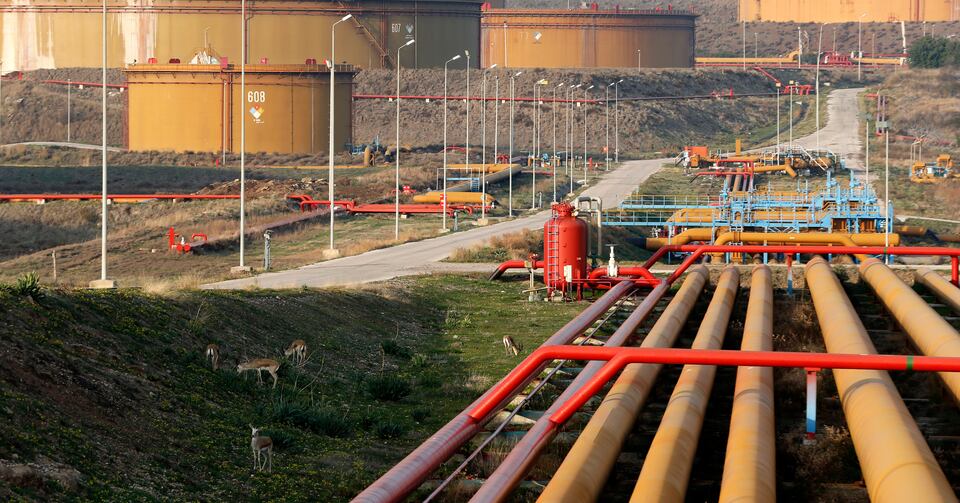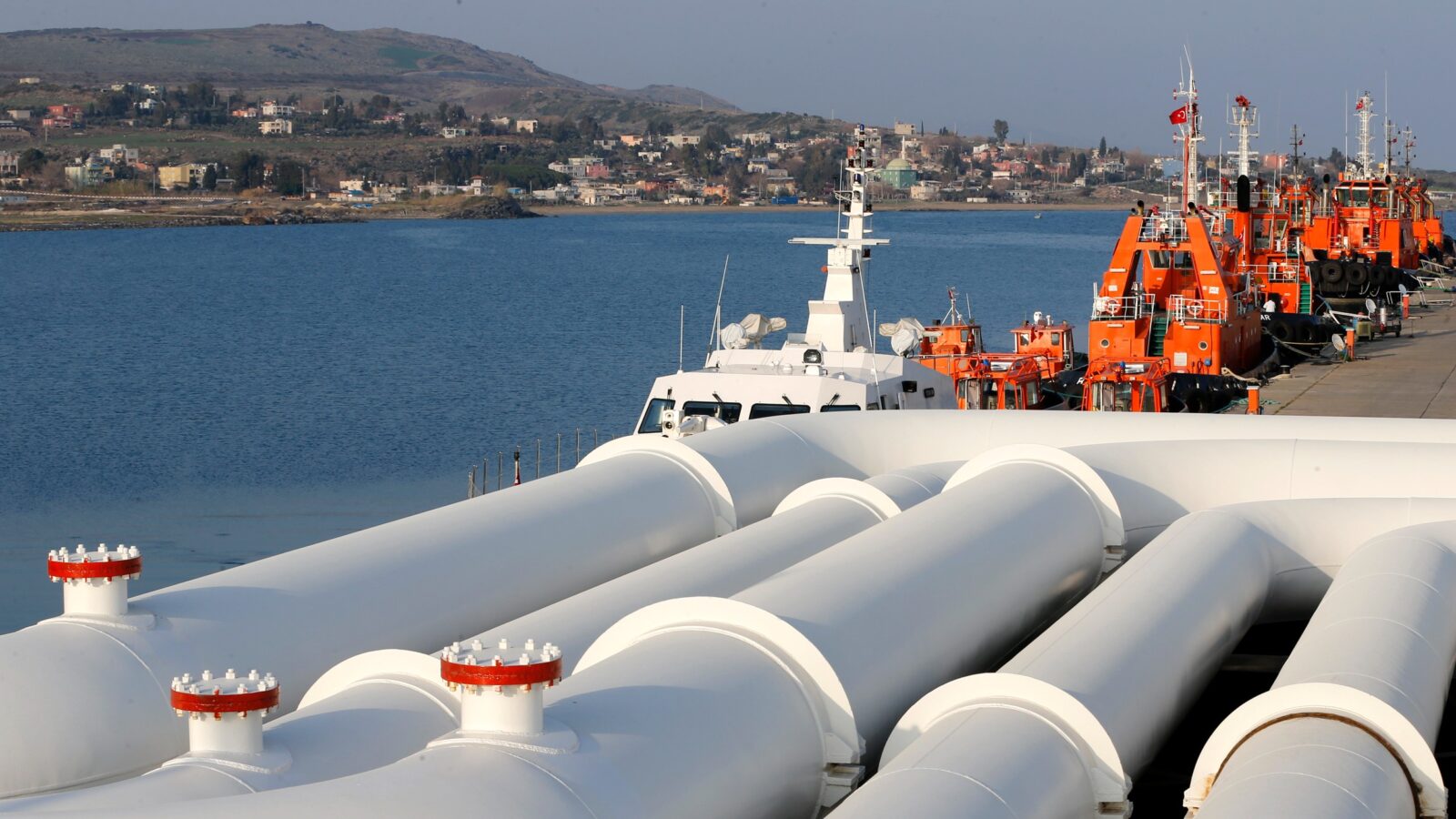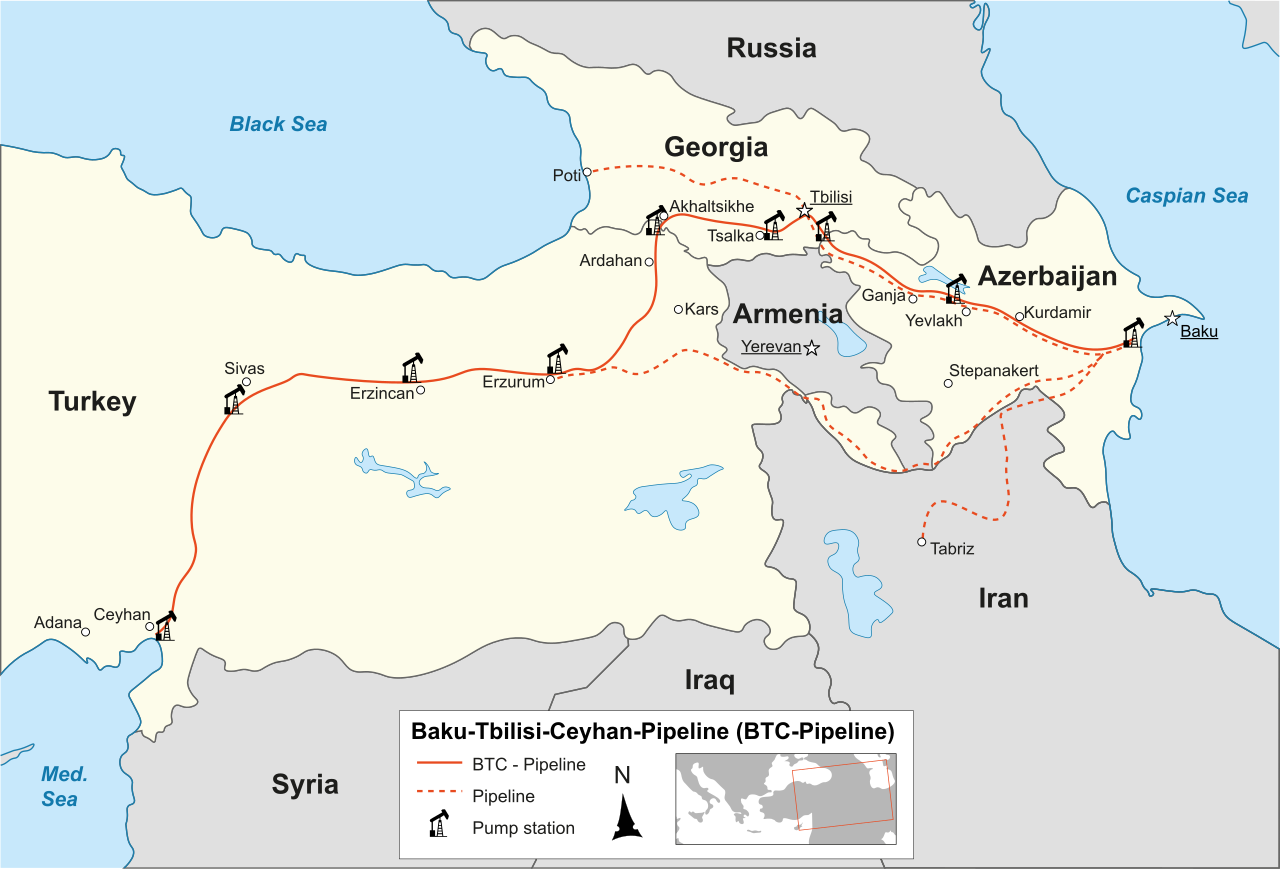
The Baku-Tbilisi-Ceyhan (BTC) pipeline transported 19.39 million tonnes of oil from January to August 2024, marking a 3.8% decrease compared to the same period in 2023, according to Azerbaijan's State Statistics Committee, as reported by Interfax.
The BTC pipeline accounted for 75.1% of the total oil transported through Azerbaijan’s trunk oil pipelines during this period.
Of this amount, 15.806 million tonnes were Azerbaijani oil, representing 81.5% of the total oil transported through BTC. However, this figure reflects a 6.1% year-on-year decline.
In contrast, the pipeline saw a significant increase in transit oil from Kazakhstan and Turkmenistan, totaling 3.584 million tonnes. This transit oil accounted for 18.5% of the total volume transported, showing an 8.5% increase compared to the same period in 2023.
The BTC pipeline, which serves as a crucial route for transporting oil from the Caspian Sea to international markets, continues to play a vital role in Azerbaijan’s oil export strategy, as well as for neighboring countries like Kazakhstan and Turkmenistan.

Despite the overall importance of the BTC pipeline for Azerbaijan, the 6.1% drop in Azerbaijani oil transported highlights a reduction in domestic production or shifts in export strategies.
This decline has slightly offset the positive trend observed in transit oil transport through the pipeline.
The increase in transit oil from Kazakhstan and Turkmenistan reflects growing cooperation among Caspian nations in utilizing the BTC pipeline for access to international markets.
The 8.5% growth in transit oil demonstrates BTC’s continued significance as a key export route for energy resources in the region.

The Baku-Tbilisi-Ceyhan Main Export Oil Pipeline has been carrying out transportation of the Azeri oil from the Caspian Sea to the Ceyhan Port of Türkiye, and from there to European markets via the Mediterranean Sea.
This system has been built the according to Host Government Agreement (HGA) between Azerbaijan, Georgia and Türkiye.